|
All my life I've had the ability to look into a person's core and see their own innate sacredness. This is a wonderful gift, and most people appreciate it, as you might imagine. However, this capacity also causes me to idealize people in an unhealthy way. When I fail to take into account their foibles and flaws (which we ALL have), I fall into a pattern of blaming myself if they don't like me, or of taking ALL of the responsibility when there is a communication snafu. Even when I work hard (and it DOES take hard work) to see a person's shadow side, his or her divinity inevitably wells up and overwhelms it! So - what is the solution? Since this pattern happens so automatically, I've learned to deal with it by separating from people for a time and immersing myself in the beauty and wildness of Nature. It makes sense, therefore, that one of my New Year's Resolutions is to spend more retreat time in the natural world - SANS camera - and to allow the Divine Gaze present within the wilderness silence to penetrate through MY shadow side in order to reveal and highlight MY own innate sacredness. This then gives me ample strength to face people - together with their overpowering divinity - without over-personalizing their criticisms, slights and potential dislike of me. Photo: Alpenglow on the Hewlett Burn, with a dead juniper in the foreground; Poudre Canyon, CO, December 29, 2015 Please visit: http://www.resourcesforspiritualgrowth.com/
0 Comments
Recently, I've been seeing a deluge of quotes on Instagram promoting self-love. At first, this might seem to be a healthy trend. After all, Jesus recommended that we love our "neighbor" as we love our own self. If we are not good to ourselves, how can we possibly be good to another? We will have nothing to give them if we do not possess some kind of sacred reservoir to draw from. However, self-love is meant to be only one facet of a larger love of the world. After all, we ourselves are part of a multi-faceted sacred Web of Life, and we - as one node in that web - deserve love just as much as any other node on the web. But we are not meant to stop there. For ultimately, we are called to love ALL of the web-nodes and not just our own. What I am seeing is a "spiritual" narcissism that corresponds to our culture's increasingly overly-individualistic stance. Currently, we see this narcissism manifesting itself BIGTIME in American politics. The fact that a candidate like Donald Trump (leaving open, of course, the possibility that he is simply putting on a momentary "entertainer act") could become so popular speaks to this kind of cultural narcissism. In the arena of pop spirituality, what used to be called retreat time - whereby we renew our relationship with the Divine - is now referred to merely as "me" time. Here, the people in one's life are viewed as mere manifestations of one's OWN desires and intentions - a sort of New Age solipsism. I am committed to a relational view of mysticism. Here there is a sacred masculine ("God"), and a sacred feminine ("Goddess"), and these two are so in love with each other that they are forever emptied into one another and into the space in between, which is where WE dwell. In this view, everything in the cosmos is a sacred "Thou" echoing and ricocheting back and forth between God and Goddess, and between all people, species and landscapes. Even what we call "I" is in reality a Thou that temporarily masquerades as a First-Person reality - an "I" - in order to facilitate the surprise that occurs when it suddenly realizes it is actually a silent "Thou" - spoken by no One - yet ricocheting back and forth between God and Goddess and between all things dwelling in between. Even God and Goddess, it turns out, are self-emptied into one another and into the "Thou" of every being. As Ramon Panikkar says, "God has no First-Person 'I'. God is only known in the Second-Person - through us - as "Thou." The same could be said of the Goddess. Here, it is as though we have two mirrors facing each other, with images of Goddess and God appearing in the mirrors, yet with no originals ever present! For they - and all things - are forever emptied into one other in ecstatic bliss. Thus, unity or non-duality - from the perspective of a Wilderness Mysticism - is innately relational. That is, each of us only knows our true identity in the mirror of the Other. One of my own major life-lessons has been the realization that other people cannot become this mirror. At their best, they are simply windows through to a larger Other, a vaster Mirror. As everyone knows, "I" find this Other primarily in the beauty of Nature. "I" discover my own inner loveliness within this mirror, and my photographs are, I believe, ample evidence of this fact. If the injunction to "love oneself" has any meaning, it is simply in withdrawing ourselves from being too embedded in the project of trying to make other people mirror us, and instead seeking this Larger mirror. When we do discover it, we are then able to love other people as windows through to this Larger mirror, and to love ourselves as windows through which THEY can find their own Larger identity. I pray in the coming year that all of us may become increasingly-clearer windows through to this Larger mirror :) Photo: Hewlett Burn, Poudre Canyon, CO, December 29, 2015 Please visit: http://www.resourcesforspiritualgrowth.com/ "My beloved dwells in the cave of my heart." Gurbani Sikh scripture Paradoxically, it is only when we enter within the cave of the heart that we discover others as the "beloved" whom they truly are. Generally, we tend to think that we are some sort of "I" who is dangling within the universe, desperately trying to find a beloved other with whom we might relate. However, this dangling "I" is not our deepest identity. Instead, our own being - and the being of everyone else - is ALREADY and forever grasped and held and known in love by the Beloved, present within all of the beautiful creatures of the world. In other words, relationship is not something we have to wait for; it is instead ALREADY a reality that constitutes our deepest self. Our core identity thus consists in being a "thou" rather than an "I"; or, as Ramon Panikkar puts it, a "thou-I." I've always loved the following passage written by a medieval Zen master named Dogen: "That the self advances and confirms the ten thousand things is called delusion. That the ten thousand things advance and confirm the self is enlightenment." Or, as a Benedictine monk named David Steindl-Rast puts it: "What you can grasp gives you knowledge. What grasps you makes you wise." When the self - the fictional "I"- tries to grasp and understand and possess beautiful things, the delusional ego - the illusory separate self so familiar to us - is always involved. However, when these same things grasp and hold our awareness - a reality we experience whenever we are attracted to beauty - then the true self or relational identity begins to manifest itself. It is here that we understand ourselves to be a beloved "thou" rather than a dangling "I." And it is here that we correspondingly empty out our sense of "I" into a realization that our identity consists in being this beloved "thou." In the process of realizing that we are actually a "thou" grasped and held by beautiful subjects, we simultaneously understand that THEY are actually mysterious presences with a sacredness all their own. For in the very moment when we reach out to them in an attempt to grasp them, THEY empty out and grasp US within our own desire! This movement on their part gives them a flash-like identity, variously called "suchness" (Zen), "the still point" (T.S. Eliot), "the still desert into which no distinction ever peeped" (Meister Eckhart), or "Blessed Far-nearness" (Margarete Porete). When we feel a desire to possess or relate to something beautiful , we find liberation when we realize that we do indeed possess it to the degree that we allow ourselves to BE POSSESSED - that is, to have our desire grasped and held by the beautiful thing. And we do this by turning our desire inward, remaining - as the Gurbani reminds us - within the beautiful "cave of the heart." Photo: Ice formations inside a rock cave located on the shoreline of The Loch, Rocky Mountain National Park, CO, December 28, 2015 Please visit: http://www.resourcesforspiritualgrowth.com/ "The contamination - pollution - begins in the mind. So that's why the whole world is in a turmoil. We totally refuse to see that all of this is Tunkasila's power. We totally deny it. Instead, we have just 'me.' 'I have wisdom.' 'I have knowledge.' 'I have power.' 'I have a gift.' 'I am the supreme.' " Wallace Black Elk Lakota elder and medicine man "Tunkasila" means "Grandfather," the personal name given to the Great Mystery. Photos: Hiking in Rocky Mountain National Park (CO) on Christmas Day. Mystical spirituality is not about using divine power to get what one wants, no matter how honorable. Rather, mysticism involves GIVING oneself in union to the divine Source - both God and Goddess - thereby allowing one's individual identity to melt and become the vehicle through which the Great Mystery knows His and Her own beauty and goodness through the human experience of awe, wonder, love and enjoyment. Photo: Carved ice and windstorm on The Loch, Rocky Mountain National Park, CO, December 28, 2015 Please visit: http://www.resourcesforspiritualgrowth.com/ "I was a hidden treasure and I longed to be known. So I created the Creation so that I may be known." Hadith Qudsi Muslim scripture "My profession is to be always on the alert to find God in nature, to know his lurking-places . . . " Henry David Thoreau I love seeking out the hidden beauties of nature and photographing them. As you've noticed, I post a lot of artistic lake-ice photos in the wintertime. To take these pictures, I have to lie down on the frozen lake surface just after sunset, place my camera into a depression in the ice, brace myself against the wind, and shoot. The result is a photo that offers an absolutely stunning perspective which few hikers or snowshoers see. Similarly, the spiritual journey is all about ferreting out the Creator's hiding places deep within the creation. Thus, when we encounter difficult situations or challenging people, we can make a game out of looking beneath the surface in order to find the deep meaning that we trust is truly present there. This search in turn brings us quite a bit of fulfillment for it necessitates activating our imagination and creativity. And that is precisely one of the traits which makes us most human. Photo: Natural ice carvings on The Loch, Rocky Mountain National Park, CO, December 28, 2015 Please visit: http://www.resourcesforspiritualgrowth.com/ True Spirituality is About the Wonder of Everything as "Thou," NOT About "Me, Myself and I"!12/29/2015 Lately, I've felt a windstorm of cultural critique brewing within me, related to the "Me, me, me" bent of so much modern pop spirituality. It seems to be popping up everywhere! Recently, I've watched dozens of videos on Instagram made by young American "yogis" promoting one variation or another of the "Law of Attraction" or the idea that "I am guiding the universal intelligence through MY intentions." Just the other day, I was having a conversation with someone about the seeming "Trickster' nature of the creator or of the universe, and the person subtly shifted the conversation to the idea, as they put it, that "I am simply tricking MYSELF." Well, I want to say emphatically that spirituality is not about "me, myself and I." What claustaphobia such a view creates! How can people endure it? True spirituality is not about the "I"; rather, it is about "Thou." Indeed, even our own self is a "Thou," In fact, even the Creator's "I" has been mysteriously self-emptied in love and bliss into the world. EVERYTHING, including what we think of as "myself"or as a First-Person Creator is actually a "Thou" echoing endlessly through the universe. This is NOT a dualism where "Thou" requires a correspondingly separate "I" in seeming opposition to It because even the divine "I" is ceaselessly lost in "Thou"! Whatever I might consider "me" is actually simply a uniquely original creative power that is able to imagine the ceaselessly echoing "Thou" of God and Goddess in fresh ways. In fact, "I" am actually that part of the divine "Thou" that mysteriously adds new "words" and a fresh "voice" to the echo whenever new myths, metaphors and images arises within "my" psyche that help interpret life in a fresh light, thereby adding to the awe and wonder of life. True spirituality is, I'm convinced, not about "me" but about releasing increasing amounts of awe and wonder into the world. That is precisely what I appreciate about true science. Spending time at the Denver Museum of Nature and Science several days ago, I felt reaffirmed in the sense of awe that scientists have - whether they be astronauts, geologists, paleontologists, fisheries biologists, ecologists, chemists, physicists, atmospheric scientists, etc. In fact, true scientists are refreshing in the way they perpetually lose the "I" in the wonder of what they are studying. I've always viewed scientists - especially when in the field - as simply "big kids" lost in the excitement and wonder of it all. If we have any "I" at all, it is simply in melting into something Larger - in becoming the mind and heart of a cosmos in the act of knowing and celebrating itself in and through us. In this kind of vision, there is simply no time to be concerned with "me, myself and I"! Photo: I could hardly take this shot of yesterday's windstorm on The Loch in Rocky Mountain National Park (CO) without getting blown away! Please visit: http://www.resourcesforspiritualgrowth.com/ Today my wife and I drove down to The Denver Museum of Nature and Science and watched a 3-D IMAX film entitled "Secret Ocean," produced by Jean-Michel Cousteau. The movie featured close-up footage of a variety of different sea creatures, especially those inhabiting coral reefs. As I watched the beauty and movement of these stunning creatures set to music I began to cry. This is a usual occurrence for me, especially with IMAX or National Park movies that focus on the grandeur and beauty of Nature. I find myself feeling ONE WITH the creatures and landscapes depicted, an experience that expands the boundaries of my usual self to include an Other - the sacred inner core of plants, animals, landscapes, skyscapes and people. Something similar occurs whenever I experience the beauty of Nature through the vehicle of my camera lens. As my boundaries melt and flow outward to include the multi-faceted beauty of the world, the only possible response is a RELEASE of the usual centripetal, inward-focused energy that works so diligently to hold those self-boundaries together. Indeed, this explosion is so immense that it can only result in tears. For most of my life, I've known that tears are not necessarily associated solely with sadness. Rather, they express an indefinable emotion that includes not only sadness but elements of longing, joy, awe, belonging and union. Even sadness here recasts itself as fulfillment. We can see this association illustrated by the fact that the Latin word "satis" - the root of our word "sad" - is ALSO the root of the word "satisfied." Although macho-oriented cultures may believe otherwise, tears are not a sign of weakness. Instead, they offer evidence of an immense strength that arises from being CENTERED enough to allow our boundaries to expand to take on the identities of others. Chogyam Trungpa Rinpoche calls this the "sore spot" that enables us to fall in love. As Benedictine monk David Steindl-Rast puts it, "In genuine feeling, the deeper it is, the more ambiguous it is." Here, sadness is joy and joy is sadness, and we find both exquisitely expressed in tears. It is especially important, I'm convinced, for men to cry, for this expression reveals a TRUE masculine strength that far transcends the usual macho posturing which has brought so much suffering and devastation to the world. May all of us - both male and female - know the true POWER of tears! Photo: Artistic ice on Dream Lake, Rocky Mountain National Park, CO Please visit: http://www.resourcesforspiritualgrowth.com/ On Saturday, we watched a Netflix movie entitled "Some Kind of Beautiful." The film portrays an English Professor (Pierce Brosnan) whose female students (Jessica Alba and Lindsey Sporrer) initiate romantic liaisons with him. Alba ends up marrying the professor, but later realizes she made a big mistake. Although the film involves a multitude of other plot twists, this particular part really made me think. I've long believed that our culture has an incredibly paltry view of love. After all, we use only ONE word to cover all of the various nuances and meanings of love! By contrast, the ancient Greeks had at least SIX different words: eros (sexual passion), philia (deep friendship), ludus (playful, flirtatious love), agape (universal love), pragma (longstanding love between couples), and philautia (mature self-love). In our own culture, love between a man and woman (leaving open the possibility that same-sex love may contain a greater number of variations) generally has only two recognized types: romantic love (where there is an erotic attraction) and "just friends" love (where there is little or no attraction.) I believe we suffer immensely in our society because we fail to have a more nuanced understanding of love. For example, we would do well to value ludus more, where playful flirtation - which does indeed hold an element of attraction - is valued AS AN END IN ITSELF, without the need to act romantically or sexually on it. In the movie, perhaps both Brosnan and Alba could have benefited from understanding that an attraction felt between a younger student and an older teacher can definitely be valued as an end in itself, without the need to act erotically on it. In this case, a seventh kind of love (philosophia, love of wisdom) predominates, as the two parties find themselves oriented toward an attractive sacred THIRD. In fact, in my mind, ALL true love is oriented ultimately toward a larger Third presence - The Divine - which manifests Itself to each of us in a multitude of different ways. What would our society be like if we held a more nuanced view of attraction, where any magnetism felt between two people could be valued as a worthy end in itself, without the need either to repress it or act romantically on it? Perhaps we could learn here from others cultures - Latin American, French, Italian, and a few other European cultures, for example - where there is always the option of viewing attraction more playfully as a worthy end in itself. Personally, I'm most drawn to a philosophia version of love and find it profoundly fulfilling. How about you? Photo: Different color variations of Paintbrush, Saint Louis Lake, Fraser Experimental Forest, CO, August, 2015 Please visit: http://www.resourcesforspiritualgrowth.com/ "Go climb a mountain. Cool your head in the sky and then you will be calmer and see better your own and the world's woes and how to help cure them . . ." The Contemplative John Muir |
AuthorStephen Hatch, M.A. is a spiritual teacher and photographer from Fort Collins, Colorado. His approach is contemplative, inter-spiritual, and Earth-based. Archives
June 2016
Categories |
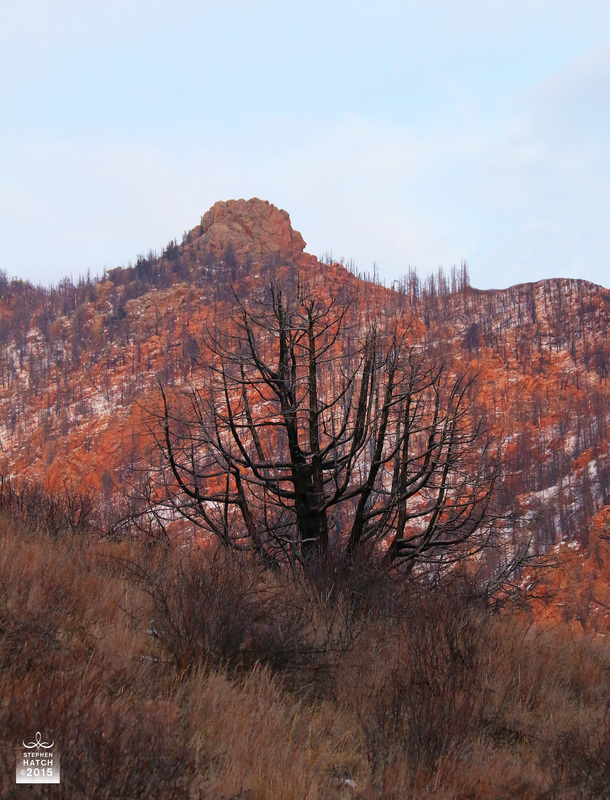
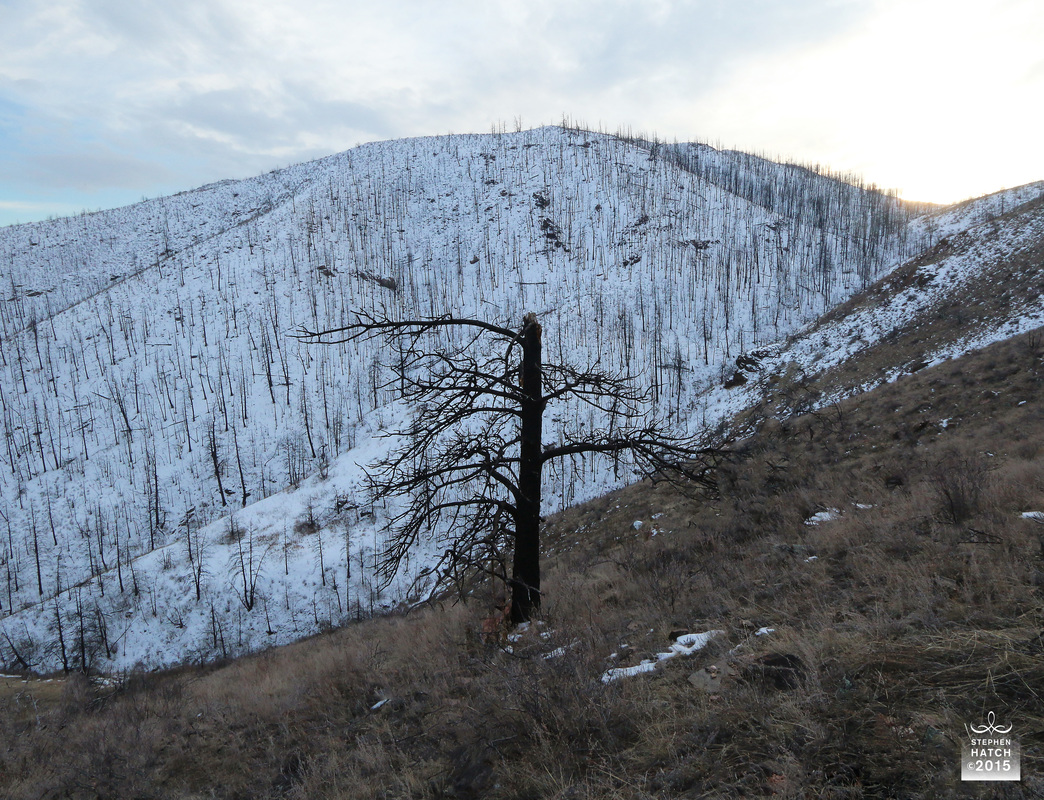
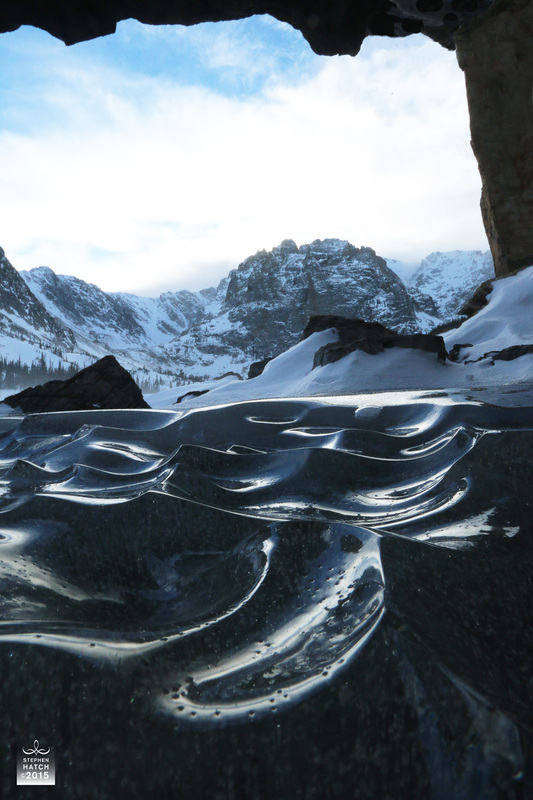

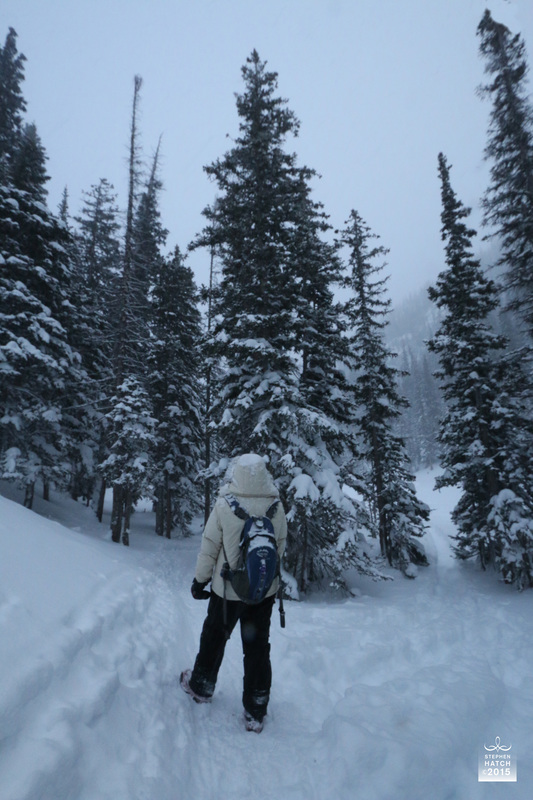

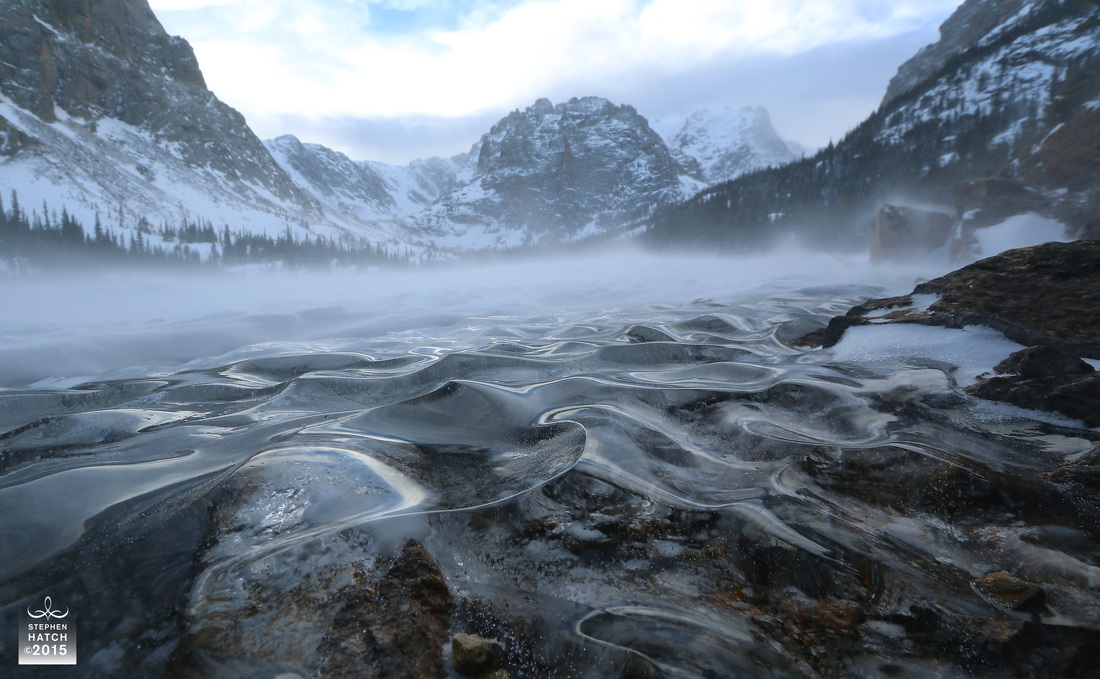
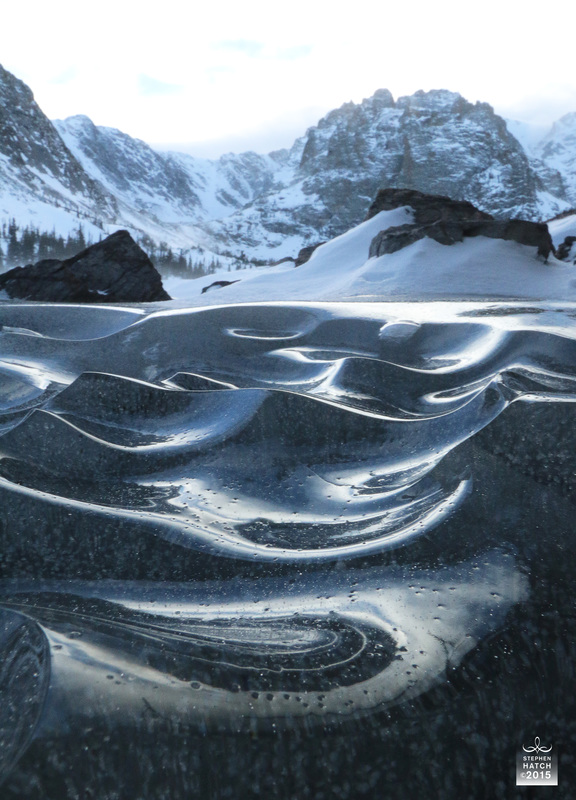

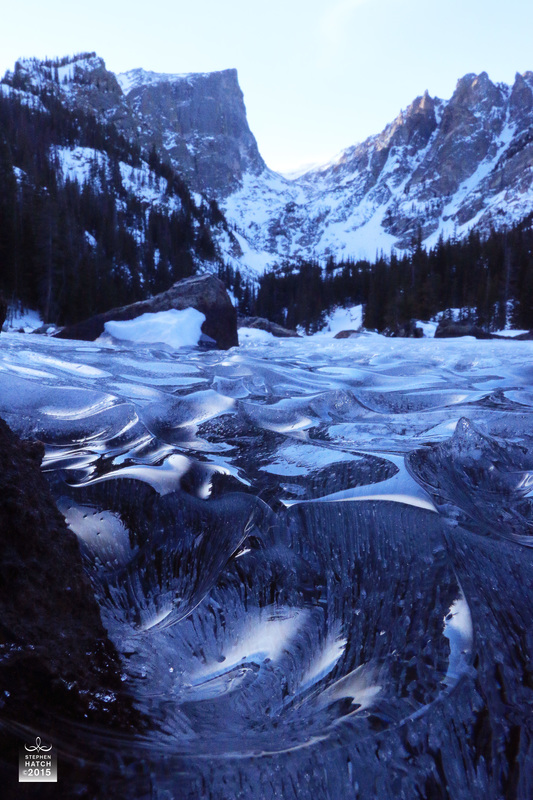
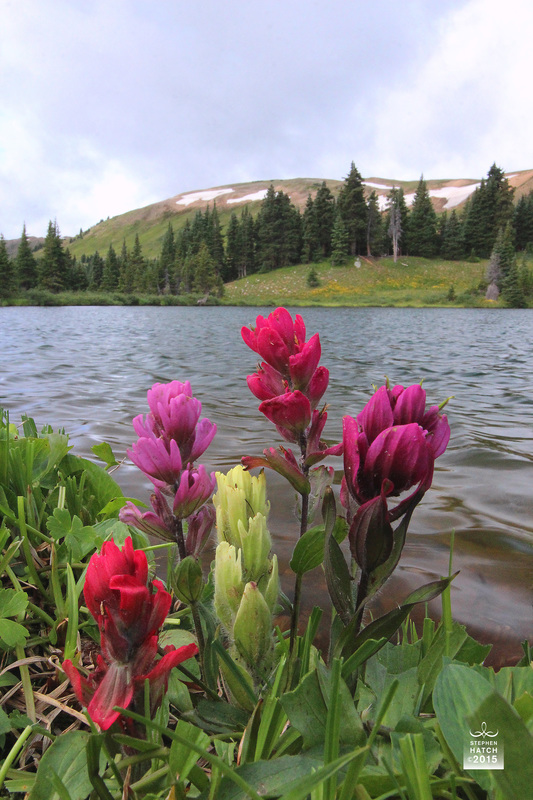

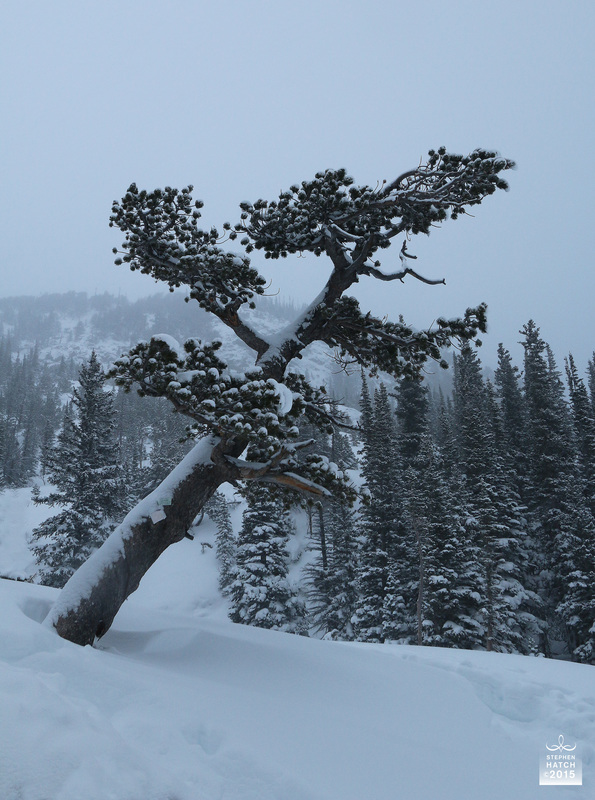

 RSS Feed
RSS Feed
